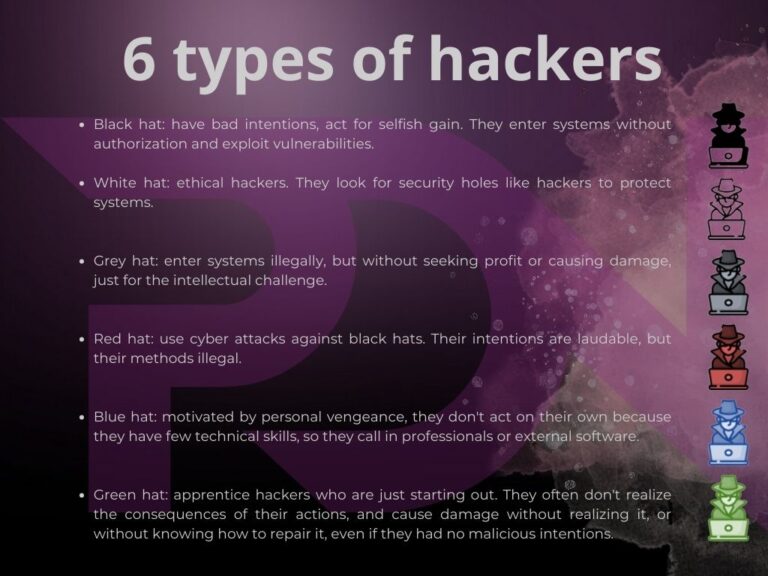The terms “pirates” or “hackers” often conjure up stereotypical images from the collective imagination or media representations. We visualize them as computer geniuses, frantically tapping away at a keyboard in a darkened room, lit only by the dim glow of a screen scrolling lines of neon green code, their faces barely visible beneath the hood of a black sweatshirt. But beyond this caricature, who are these mysterious individuals operating in the dark corners of cyberspace? What are their true motivations? What methods do they use to penetrate systems that are often well protected? And above all, are there any ethics involved in these often illegal activities?
These questions raise many issues, and the answers are far from simple. Hackers are not a homogeneous group: some operate for personal gain or espionage, others out of defiance or ideology. The latter, sometimes called “hacktivists”, use their skills to defend causes or denounce injustice. Their activities cover a wide spectrum, from simple testing of a site’s vulnerabilities to massive cyberattacks crippling entire institutions.
Clearly, gathering reliable information about them is a challenge, as their actions are often cloaked in a veil of anonymity. However, sources do exist, such as anonymous interviews, rare testimonials, and exchanges on specialized forums and discussion platforms, often encrypted. These snippets of information make it possible, with care, to draw a more nuanced portrait of these players in the digital world.
In this two-part article, we attempt to explore this universe by analyzing their profile, motivations, methods and self-perception of their actions and seek to understand who really lies behind these enigmatic figures.

The psychology of a digital hacker is often marked by a fascination with complex systems and security mechanisms. Here are some common traits that are frequently found:

The question of ethics is central to understanding digital hackers. Even if they don’t hesitate to break the law, some hackers, even non hacktivists, have a certain code of honor. Some, for example, refuse to attack healthcare systems or charitable organizations. Hacktivists, on the other hand, often justify their illegal actions by invoking a “greater good”, such as the fight against corruption or the protection of individual freedoms. Hackers often believe they form a community apart, with more insight than others into how the world works, and therefore feel entitled to run it in some orderly fashion. Their superior understanding and intelligence would give them this right.
We will be back mid february for the second part of our article, focusing on a specific hacking and piracy network: IPTV cybercriminals. In the meantime, if you have a film, series, software or e-book to protect, don’t hesitate to call on our services by contacting one of our account managers; PDN has been a pioneer in cybersecurity and anti-piracy for over ten years, and we’re bound to have a solution to help you. Enjoy your reading, and see you soon!
Share this article